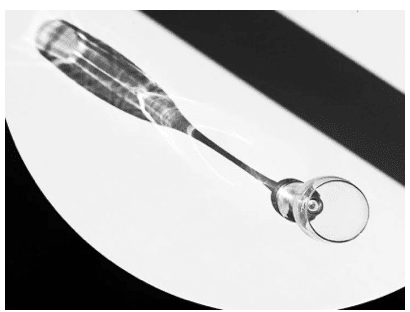Women who were born via caesarean section are more likely to also give birth via caesarean section, concluded an international team of scientists including Michaela Pavlicev of the Cincinnati Children’s Hospital Medical Center (Human Genetics) and evolutionary biologists at the University of Vienna in a study that was published in PNAS.
According to the information that the scientists collected, the regular use of C-sections causes the evolutionary increase of fetopelvic disproportion by 10 to 20 percent, which results in the occurrence of obstructed labor.
The dangers of being obese at the time of pregnancy
A recent report released by the Information Services Division of Scotland’s National Health Service showed that the proportion of expectant mothers who are obese or overweighthas increased to 51 percent from 41 percent in just a span of six years, stating, “a constant creeping increase” is evident among mothers in all age groups.
According to the report, these mothers are the ones who are most in danger of developing high blood pressure and diabetes, and their babies are the ones who are most in danger of spending time at a neonatal unit after they were born.
“Women generally do not want to be overweight. It is difficult. We all know that we would prefer to eat more healthily and exercise more, but actually, life is busy. It is very difficult to incorporate changes in your lifestyle,” said Fiona Denison, who attends to patients at Tommy’s Metabolic Antenatal Clinic in Edinburgh and who researches the issue of obese expectant mothers at Edinburgh University‘s MRC Centre for Reproductive Health.
This issue is a cause for concern as complications in a woman’s pregnancy may lead to even deeper complications in the fetus that she’s about to bear, such as the baby being born prematurely. In the United Kingdom, over 61,000 babies are born prematurely annually, and among those babies, around 1,000 die every year.
The babies who survive are in danger of developing cerebral palsy, learning difficulties, blindness, and are more at risk of acquiring health issues in their adult lives such as diabetes and high blood pressure.
“Preventing premature birth remains a major challenge to modern medicine,” said Professor Nigel Klein of the University College of London Great Ormond Street Institute of Health.
Researchers led by Klein, in cooperation with the children’s charity Action Medical Research, are trying to come up with a way to predict, very early in pregnancy, which women are at risk of premature birth. “We hope our new test will mean women who are found to be at high risk of giving birth early can be monitored more closely and offered extra treatment with the aim of prolonging their pregnancy,” Klein said.
The government is also not turning a blind eye on this issue. Scotland public health minister Aileen Campbell said: “We are consulting on our new diet and obesity strategy which sets out proposals to create a culture where children develop good food habits throughout life, which we believe can start before birth.
“Our maternal and infant nutrition framework helps NHS boards, local authorities and others to improve the nutrition of pregnant women, babies, and children.”
How many pounds have you lost this week? At Dieta Efectiva you can lose 10-12 lbs your first week and 2-5 lbs every week after. Visit us dietaefectiva.net to learn more about our program.
NN:AG







